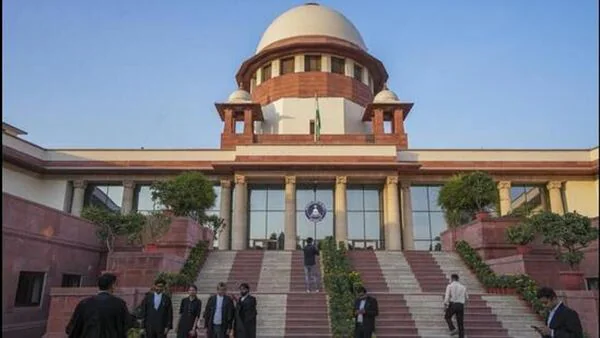
Muslim Girl, 16, Entitled To Valid Marriage Under Personal Law, Rules SC: 'If Two Minor Children Are Protected...'
A bench of Justice BV Nagarathna and Justice R Mahadevan ruled that the child rights body had no locus standi to contest the High Court's order, which was delivered in 2022.
Also Read | Chhattisgarh jailbreak: 4 accused of rape, POCSO on the run Why did the Supreme Court reject NCPCR's petition?The Supreme Court bench observed that the NCPCR was a“stranger to the litigation” and therefore could not challenge the relief granted by the High Court.
“Why should the NCPCR be challenging an order of the High Court granting protection to the life and liberty of the couple who were facing threats?” the judges asked, as reported by LiveLaw.
The apex Court added:“NCPCR has no locus to challenge such an order... if two minor children are protected by the High Court, how can NCPCR challenge such an order? It is strange that the NCPCR, which is for protecting the children, has challenged such an order.”
Dismissing the plea, the Supreme Court bench further observed:“We fail to see how NCPCR can be aggrieved by such an order. If the High Court, in exercise of its power under Article 226, seeks to extend protection to two individuals, the NCPCR has no locus standi to challenge such an order. Dismissed.” as quoted by LiveLaw.
Also Read | Supreme Court asks Centre to establish POCSO courts on 'top priority basis' What was the NCPCR's argument?Counsel for the Commission argued that the petition was filed to raise a legal question: whether a girl below 18 could be deemed competent to marry solely on the basis of personal law.
The NCPCR contended that the High Court ruling effectively allowed child marriage, in violation of the Prohibition of Child Marriage Act, 2006, and undermined the Protection of Children from Sexual Offences (POCSO) Act, 2012, which does not recognise consent from anyone under 18.
However, the bench rejected this argument, stating that“no question of law arises” in the matter.“No question of law arises, you challenge in an appropriate case please,” Justice Nagarathna remarked.
The Court also turned down the Commission's request to keep the legal question open.
Also Read | Delhi HC says phrase 'physical relations' cannot mean sexual assault What did the High Court decide in 2022?The Punjab and Haryana High Court had delivered its ruling in a habeas corpus petition filed by a Muslim man who alleged that his 16-year-old partner was being illegally detained by her parents. The couple sought protection in order to marry.
The High Court relied on Muslim Personal Law, which allows a girl who has attained puberty to contract marriage. Referring to Principles of Mohammedan Law by Sir Dinshah Fardunji Mulla, the court noted that a Muslim girl over the age of 15 is presumed to have reached puberty unless proven otherwise.
The judgment stated:“The law, as laid down in various judgments cited above, is clear that the marriage of a Muslim girl is governed by the Muslim Personal Law. As per Article 195... petitioner No.2 being over 16 years of age was competent to enter into a contract of marriage with a person of her choice.”
Also Read | Storage of child pornographic material an offence under POCSO Act: Supreme Court How did the Supreme Court address concerns under POCSO?During the hearing, Justice BV Nagarathna observed that consensual romantic relationships between teenagers close to majority age should not automatically be equated with criminal cases.
“There is POCSO Act, which takes care of the penal cases, but there are romantic cases also where teenagers on the verge of majority run away, where there are genuine romantic cases, they want to get married. Don't read such cases the same as criminal cases. We have to differentiate between criminal cases and this,” she said, according to LiveLaw.
The Supreme Court judge further added:“Look at the trauma the girl undergoes if she loves a boy and he is sent to jail, because her parents would file a POCSO case to cover the elopement.”
Legal Disclaimer:
MENAFN provides the
information “as is” without warranty of any kind. We do not accept
any responsibility or liability for the accuracy, content, images,
videos, licenses, completeness, legality, or reliability of the information
contained in this article. If you have any complaints or copyright
issues related to this article, kindly contact the provider above.


















Comments
No comment